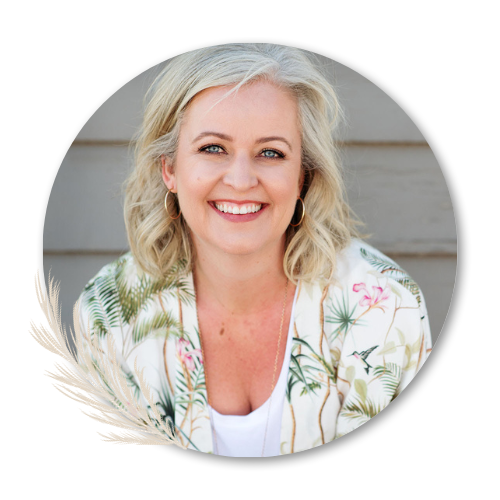
Nothing makes us feel more exposed and vulnerable than grief and loss (except maybe that nightmare you had of finally becoming a bonafide rock star only to realize you stepped out on stage COMPLETELY NAKED! Just me?!). Collectively, we’ve accumulated some wonky beliefs about grief and vulnerability (thanks society), and it’s time to set the record straight. So I’m taking the stage, with a mic in my left and a sword of Valeryian steel in my right, because we’re about to expose some myths and slay some outdated beliefs up in here!
Myths of Vulnerability*
1. Vulnerability = weakness
Nope, it doesn’t. Here’s the paradox: when we witness OTHERS being vulnerable we see it as an act of courage (it is). However, when it’s OUR TURN to be vulnerable (scary!) it feels like weakness (it’s not). Vulnerability is ALWAYS an act of courage – for others AND for us.
Nope, it doesn’t. Here’s the paradox: when we witness OTHERS being vulnerable we see it as an act of courage (it is). However, when it’s OUR TURN to be vulnerable (scary!) it feels like weakness (it’s not). Vulnerability is ALWAYS an act of courage – for others AND for us.
2. Vulnerability is optional
Vulnerability involves uncertainty, risk, and emotional exposure. To be ALIVE is to be vulnerable. Can you imagine how exhausting it would be to travel through life trying to minimize ALL uncertainty, risk, and emotional exposure? It’s impossible. Vulnerability is unavoidable.
Vulnerability involves uncertainty, risk, and emotional exposure. To be ALIVE is to be vulnerable. Can you imagine how exhausting it would be to travel through life trying to minimize ALL uncertainty, risk, and emotional exposure? It’s impossible. Vulnerability is unavoidable.
3. Vulnerability = oversharing
Oversharing can be…awkward for the listener. There’s a recklessness to it that doesn’t respect the listener’s boundaries. Sometimes, we convince ourselves to keep quiet (and avoid vulnerability) rather than risk oversharing. Vulnerability is different. It’s sharing with the intention to connect. It builds trust and intimacy.
Oversharing can be…awkward for the listener. There’s a recklessness to it that doesn’t respect the listener’s boundaries. Sometimes, we convince ourselves to keep quiet (and avoid vulnerability) rather than risk oversharing. Vulnerability is different. It’s sharing with the intention to connect. It builds trust and intimacy.
4. We can practice vulnerability alone
We convince ourselves that being vulnerable in the pages of our journal or crying when no one is looking is enough. But the point is to connect. By all means, write it out but don’t stop there. Take your vulnerability off the page and share it with someone you trust.
We convince ourselves that being vulnerable in the pages of our journal or crying when no one is looking is enough. But the point is to connect. By all means, write it out but don’t stop there. Take your vulnerability off the page and share it with someone you trust.
5. You can take the discomfort out of vulnerability
Rehearse what you’re going to say. Anticipate reactions. Adjust your script. Rinse. Repeat. Until you wash all the vulnerability out of it. Here’s the thing: interactions between humans will ALWAYS involve some uncertainty, risk, and emotional exposure. That’s what makes vulnerability uncomfortable. With the right people though…it’s worth it.
Rehearse what you’re going to say. Anticipate reactions. Adjust your script. Rinse. Repeat. Until you wash all the vulnerability out of it. Here’s the thing: interactions between humans will ALWAYS involve some uncertainty, risk, and emotional exposure. That’s what makes vulnerability uncomfortable. With the right people though…it’s worth it.
6. Trust comes BEFORE vulnerability
Actually, you can’t have one without the other. Trust and vulnerability hold hands. They grow together. They support each other. To betray one is to destroy both.
Actually, you can’t have one without the other. Trust and vulnerability hold hands. They grow together. They support each other. To betray one is to destroy both.
Which brings us to why sharing your grief with someone always involves uncertainty, risk, and emotional exposure. It makes us feel oh, so vulnerable.
It can feel extra scary if you’ve ever bumped up against some of the myths of grief. If you’re human, you’ve had someone say at least one of these things to you. Maybe you’ve also said a variation of these to someone struggling with grief. That’s okay. Part of being human is making mistakes. We’ve all been there.
Often, we fall into the safety of these myths of grief to avoid the discomfort that we feel in the presence of someone else’s pain. Because their pain reminds us of our pain. At the end, I’ll share what you can do instead, so keep reading!
Myths of Grief**
1. Don’t feel bad.
This is a logical response to emotional pain. The brain can’t heal the heart. We can’t think our way out of grief. This myth can sound like, “Don’t worry. There’s plenty of fish in the sea.” (Gag! Can we please all agree to let this particular metaphor sleep with the fishes?) Or it can sound like, “He/she’s not worth your tears.” This myth confuses the griever and teaches them not to trust their emotions. Should they NOT be feeling this way?
This is a logical response to emotional pain. The brain can’t heal the heart. We can’t think our way out of grief. This myth can sound like, “Don’t worry. There’s plenty of fish in the sea.” (Gag! Can we please all agree to let this particular metaphor sleep with the fishes?) Or it can sound like, “He/she’s not worth your tears.” This myth confuses the griever and teaches them not to trust their emotions. Should they NOT be feeling this way?
2. Replace the loss.
We’re taught how to acquire things in life – not what to do when we lose them. This myth can sound like, “So, when are you going to get another dog?” Or, “the best way to get over someone is to get under someone else.” Moving on too quickly leaves us feeling guilty or simply repeating the patterns of a previous relationship.
We’re taught how to acquire things in life – not what to do when we lose them. This myth can sound like, “So, when are you going to get another dog?” Or, “the best way to get over someone is to get under someone else.” Moving on too quickly leaves us feeling guilty or simply repeating the patterns of a previous relationship.
3. Grieve alone.
“Laugh and the whole world laughs with you. Cry and you cry alone.” Grief needs to be acknowledged and honoured. It needs space to breathe and be recognized – only then can the healing begin. Grief is a bittersweet reminder of how much love and connection you felt. Reach out to a trusted friend, coach or therapist. Letting loved ones witness your vulnerability strengthens the trust between you and can encourage others to share their vulnerable moments instead of struggling alone.
“Laugh and the whole world laughs with you. Cry and you cry alone.” Grief needs to be acknowledged and honoured. It needs space to breathe and be recognized – only then can the healing begin. Grief is a bittersweet reminder of how much love and connection you felt. Reach out to a trusted friend, coach or therapist. Letting loved ones witness your vulnerability strengthens the trust between you and can encourage others to share their vulnerable moments instead of struggling alone.
4. Just give it time.
Say it with me, “Time does NOT heal all wounds.” Waiting for relief doesn’t work. We don’t tell someone with a broken ankle to “just give it time.” So, why do we expect broken hearts to heal on their own? The best thing you can do is take action.
Say it with me, “Time does NOT heal all wounds.” Waiting for relief doesn’t work. We don’t tell someone with a broken ankle to “just give it time.” So, why do we expect broken hearts to heal on their own? The best thing you can do is take action.
5. Be strong for others
This myth doesn’t acknowledge our pain. It teaches us to stuff the pain way down deeeep in our emotional basements. And we all know NOTHING GOOD EVER COMES from ignoring and suppressing our emotional pain. What if, instead of “being strong”, you can yourself permission to feel and allowed yourself to grieve (whatever that looks like for you)?
This myth doesn’t acknowledge our pain. It teaches us to stuff the pain way down deeeep in our emotional basements. And we all know NOTHING GOOD EVER COMES from ignoring and suppressing our emotional pain. What if, instead of “being strong”, you can yourself permission to feel and allowed yourself to grieve (whatever that looks like for you)?
6. Keep Busy
Avoid. Outrun. Outsmart. Elude. Exhaust. Keep busy so you don’t have TIME to feel anything. We’re experts at avoiding our unresolved emotional pain. Kings and Queens of distraction. Masters of numbing. But the pain never goes anywhere. Your pain will still be waiting for you at the end of the day. It’ll be there to greet you every morning – until you take action to complete it. It’s time to give yourself permission to grieve.
Avoid. Outrun. Outsmart. Elude. Exhaust. Keep busy so you don’t have TIME to feel anything. We’re experts at avoiding our unresolved emotional pain. Kings and Queens of distraction. Masters of numbing. But the pain never goes anywhere. Your pain will still be waiting for you at the end of the day. It’ll be there to greet you every morning – until you take action to complete it. It’s time to give yourself permission to grieve.
We’ve all used (one, more, all) of these myths. It’s okay. We’re all human and we’re going to mess up.
So what CAN we do? What’s actually helpful?
Grief makes us feel vulnerable. Vulnerability is an opportunity to connect, build trust and foster intimacy.
Instead of giving someone space to “get over it” why not check in on them?
Be a heart with ears. Listen…deeply. No judgment. No fixing. No criticism. Grievers just want to be heard. Be open, present, loving, and listen with empathy and compassion. And when in doubt? Listen more.
Want to see a brilliant example of being a heart with ears? Watch Julia Roberts and Richard Jenkins in this scene from Eat, Pray, Love.
Take action today.
I’d love for you to start a conversation about the myths of grief and vulnerability with your friends. What’s the best thing someone ever said to you after a loss? What’s your favourite way to support someone who’s grieving?
*The Myths of Vulnerability are taken from “Dare to Lead” by Brene Brown
** The Myths of Grief are taken from “The Grief Recovery Handbook” by John W. James and Russell Friedman
 Love what you read here?
Love what you read here? Send to a friend or subscribe for more posts, perks, and inspiration!


























0 Comments